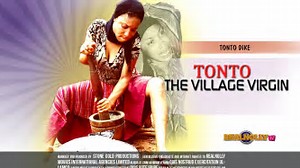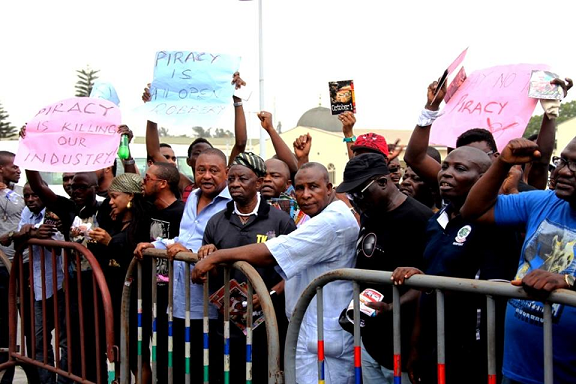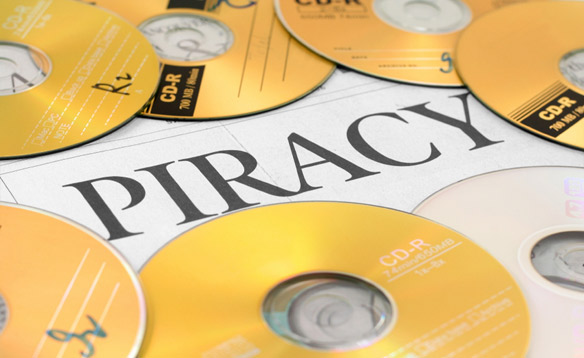Perhaps by far one of the most significant deterrent to the progress of the publishing industry whether it be film, video, or books is the menace of piracy.
In its simplest form, piracy is the unauthorized reproduction or use of a copyrighted book, recording, television program, patented invention, trademarked product, etc.
Prior to the internet boom that finally caught up with Africa and Nigeria especially in 2000, the practice was limited to CDs, DVDs, etc.
It became common place to find a favorite Nollywood comedy by Aki and Pawpaw, or hip hop music by Wizkid, Psquare, among others and of course the last but never least, an inspiring message from a leading gospel preacher floated on the street in various packs that clearly indicated that they were not from the original producers.
However, technology in its usual two-sided coin manner has moved this disease to the entertainment and publishing industry alike to a totally different and higher pedestal.
For instance, I was at a conference somewhere in Lagos Nigeria recently and within 5 hours from the close of that session I was in complete awe over the fact that about the entire program had been neatly documented in video and uploaded on YouTube.

That such sophisticated but simple technology (at least in our post-modern society) is available via a smartphone or any other mobile devise is one of the most threatening aspect of the piracy problem.
There is no telling exactly how much is lost to piracy whether in Nigeria for instance, Ghana or across the globe but while there have been wide dismissal of the claims as inaccurate, an estimated US$50 billion goes unaccounted for every year - thanks to Piracy.
Nigeria alone is estimated to loose nearly US$3million (over N1 billion annually) and the more people have access to smart devices that enable them sideline the conventional sources for entertainment contents for their YouTube, Facebook or google alternatives, that figure is sure to escalate.
Which is why the commissioning of an 8-man national taskforce by the Executive Director of Nigeria’s National Film and Video Censors Board (NFVCB), Alhaji Adebayo Thomas raises intense curiosity as what their strategy may be in addressing what obviously appears to be a systemic problem.
Should we shy away from taking responsibility for major issues as this? Definitely not but like other challenges that have become highly tech-based, it’s needful to draw attention to the fact that the approach should equally be tech-based and not merely a somewhat ‘community-policing’ style.

Speaking at the Ikoyi office of NFVCB, Alhaji Thomas stated that: “The government recognizes the pivotal role the entertainment industry plays in propelling economic growth and creating mass direct and indirect jobs. The policy objectives of the ERGP for the creative industry are to increase film production by 15 per cent on an annual basis, export videos to generate USD1 billion in foreign exchange by 2020 and improve enforcement of intellectual property rights for artistic works produced in Nigeria.†In driving conscious action towards the realization of these objectives, the Board is working assiduously to improve film export to international markets, encourage legitimate importation, increase the GDP contribution of the industry from 1.5% to an appreciable figure and promote the development and growth of the film industry as a key non-oil sector of the economyâ€.
As laudable as these goals are, their realization will require first a broad partnership from all stakeholders as well as an aggressive technological infrastructure that would match this 21st century piracy practitioners boot-for-boot.





